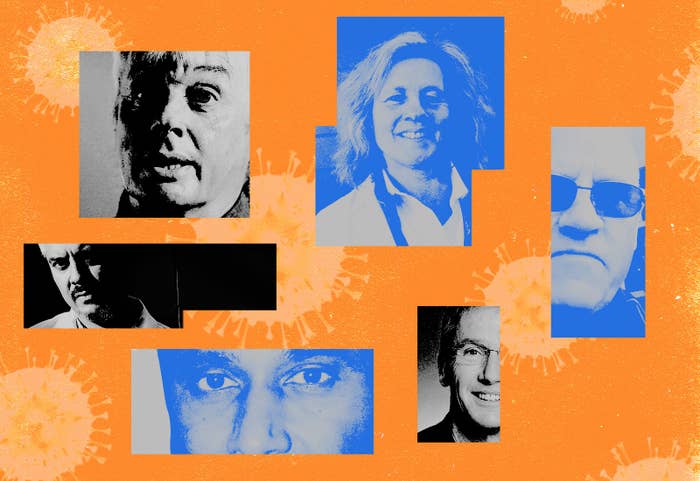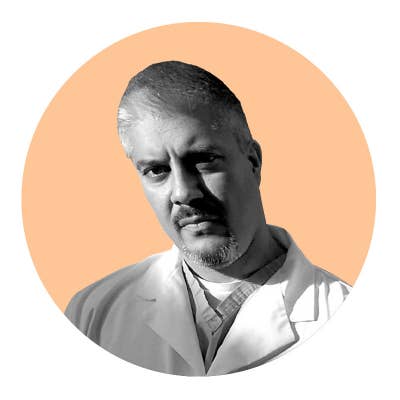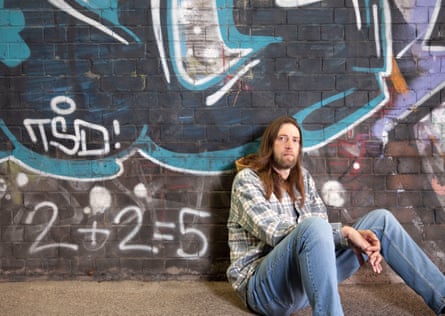UK
Among the Covid sceptics: ‘We are being manipulated, without a shadow of a doubt’
Who are the people who have come to follow wild conspiracy theories about Covid-19?
by Samira Shackle
THE GUARDIAN
Thu 8 Apr 2021
When the pandemic hit in March 2020, Anna, a young woman from Bradford, was waiting for surgery for endometriosis. The surgery was cancelled, leaving her in excruciating pain. She was forced to close her business, a small tattoo studio that she had opened two years earlier, at the age of 24. She could no longer pay for the weekly counselling that had been helping her deal with her troubled childhood. Her partner lost his job. Anna was convinced that if she caught Covid, she would die. “I was in a terrified bubble, having the news on constantly, crying, worrying, panicking,” she told me. For weeks, she waited anxiously for news about support for shuttered businesses. The cash grant, when it finally came, fell far short. Other business expenses – insurance, bills – went on her credit card. She considered suicide.
Feeling abandoned by the government and frustrated by the daily press briefings, Anna and her partner researched the virus online. On Facebook, Instagram and YouTube, they came across theories about the origins of coronavirus that the mainstream media weren’t talking about – that it was engineered in a lab in China, say, or that it had been artificially spliced with HIV. Some of it seemed implausible to Anna, but it was enough to convince her that the media wasn’t telling the full story. “Loads of people were saying ‘even if you die from a heart attack, they’ll put it down as a Covid death’. I was looking into that, and how many people who died had pre-existing health conditions,” she said. “It was to make me feel better, so I wouldn’t be as scared.
She read dense, seemingly scientific material which claimed that PCR testing – the throat and nasal swabs that are considered the gold standard of Covid tests – leads to enormous numbers of false positives. She read that the World Health Organization had said that Britain is testing at too high a sensitivity. She read about the cost of lockdowns, and Sweden’s more permissive approach. She read about the death rate; 1% didn’t sound that high at all. Looked at another way, 99% survived. By the end of the first lockdown, Anna was no longer afraid. She was angry. “I’d been sat in my house for four months, in absolute agony, no mental health support, no financial support, and it did an absolute number on me,” she said.
Advertisement
Anna was not the only one to respond this way. During the first few months of the pandemic, a broad movement coalesced online. At the most extreme end were outright Covid deniers, those who believed that the virus didn’t exist and the pandemic had been fabricated. At the other were Covid sceptics or anti-lockdowners, those who thought that the numbers were exaggerated or that the government had an ulterior motive for restricting freedoms. Over the past year, these views have attracted more and more adherents. Occasionally, the most extreme activists have taken direct action: setting fire to 5G masts which they suspected of spreading the virus, entering Covid wards and attempting to remove relatives, visiting hospitals to film empty corridors and posting them as “evidence” that the public is being lied to about the numbers of sick and dying. On New Year’s Eve, a doctor at St Thomas’ hospital in London filmed a crowd of protesters who had gathered outside holding placards and chanting “Covid is a hoax”.
“A lot of people think that they’re the only ones that think like they do, and they’re not,” the British businessman Simon Dolan told me in January. Early in the pandemic, Dolan, who owns a chartered airline and a motor-racing team and lives in Monaco, attempted to prove through the courts that lockdown was unlawful. The case failed, but as it picked up media attention, people contacted him to express their support – mostly small business owners, he said, and others directly affected by strict lockdown rules. “There’s thousands and thousands, more as time goes past, that think this stuff has been really overblown and there is something a bit fishy about it.”
Although these are minority views, polls suggest the numbers are significant. A YouGov survey in October found that the number of people in the UK who thought that Covid fatalities had been exaggerated was about 20%. “Civilians have come across conspiracy theories in a way they haven’t ordinarily,” said Peter Knight, a professor at Manchester studying Covid-19 disinformation. As death rates soared in December and January, Facebook groups, Instagram accounts and Telegram channels dedicated to downplaying the pandemic attracted thousands of followers.
Covid scepticism is not limited to a single demographic. Many Facebook accounts are run by suburban mums, who post memes about children being traumatised by masks. Other Covid sceptics, particularly some regulars at street protests, are members of far right and football hooligan groups. Some are fans of David Icke, the conspiracist’s conspiracist, who believes that coronavirus is spread by 5G. Still others came to the movement via alternative health and new age communities, jumping into Telegram conversations about the Illuminati to talk about homeopathy and vibrations. Some are simply, like Anna, small business owners who have suffered major personal fallout over the past year. All share a conviction that they are seeing something that the mainstream is blind to.
As the vaccine rollout continues to log impressive numbers, and lockdown restrictions are eased, the movement’s appeal might be expected to fade. But it seems there is, instead, a renewed energy. Like apocalyptic cults that immediately say they had simply misinterpreted a prophecy when the world fails to end, there are at least some strains of Covid scepticism where views remain the unchanged, no matter what occurs. “A lot of these organisations are here to stay in one form or another,” said David Lawrence, who tracks disinformation for the anti-extremist organisation Hope Not Hate. “They might rebrand, they might shift focus, but a lot of people have more or less given up their normal lives to do this. They’ve really bought into it. They won’t give up that easily.”
Of the hundreds of Facebook and Instagram accounts spreading disinformation about Covid, three organisations emerged during the first lockdown to dominate the scene: Stand Up X, which had 40,000 followers on Facebook before it was removed in September, and remains active on Instagram and Telegram; Save Our Rights UK, which has 65,000 followers on Facebook; and Stop New Normal, which sprang up around Piers Corbyn, the brother of the former Labour leader, who is often the headline act at anti-lockdown rallies. (Piers Corbyn is one of four anti-lockdown candidates standing for London mayor in May, along with the actor Laurence Fox, the London Assembly member David Kurten and the American conspiracy theorist and podcaster Brian Rose, who interviewed Icke in March.)
From April 2020 onwards, all three groups began organising small protests, and on 16 May they attracted national attention when protesters clashed with police at Hyde Park in London. Corbyn was arrested along with 18 others. “That event got a lot of press because it was confrontational,” said Lawrence. “The rallies elsewhere flopped, but it was the first properly coordinated attempt to have protests around the country.”
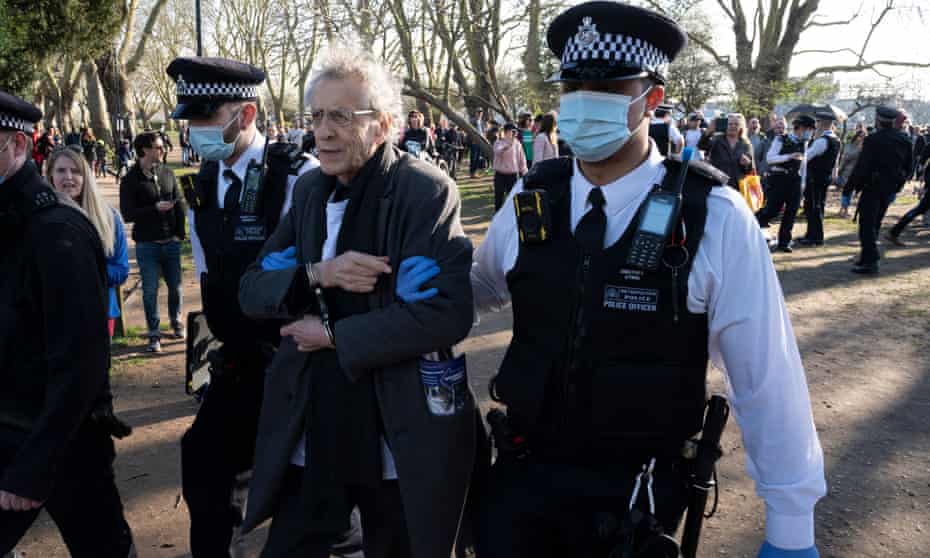
Piers Corbyn being arrested at an anti-lockdown protest in Fulham, west London, February 2021. Photograph: Ray Tang/Rex/Shutterstock
Protests continued through the early summer but struggled to get traction. Most groups remained focused on internet activism. When following anti-lockdown accounts on Facebook or Instagram, it is striking is how quickly the posts about the supposed dangers of vaccines and the memes depicting government ministers as cult leaders lose their power to shock and are simply folded into the fabric of the everyday, appearing alongside pictures of friends’ babies and job news. On lively Facebook groups, people swap stories about hardship under lockdown, and approvingly share screenshots of tweets by mainstream lockdown sceptics such as Toby Young and Allison Pearson. One particularly popular figure is the backbench Tory MP Charles Walker, who voted against the second and third lockdowns and recently staged a protest against ongoing Covid restrictions in which he walked around London holding a pint of milk. “Charles Walker, one of the very few good ones”, wrote one admirer on Telegram.
Alongside this, there is more extreme content – people posting about the government using vaccines to implant microchips in your brain or about the New World Order, a longstanding conspiracy theory that a shadowy elite is secretly plotting to bring about a worldwide totalitarian government. The tone of the posts, even when describing conspiracies to end humanity as we know it, is not panicked, but worldly wise: come on, is it still not obvious what’s really going on? It is easy to assume these wilder theories would put any reasonable person off. But that isn’t how disinformation works. Just as with any other belief system, it’s possible to subscribe to elements of something while not agreeing with everything.
This was Anna’s experience. She didn’t agree with everything that people posted on the different Instagram accounts she followed; she’d had a lot of medical treatment in her life, so she had no time for the anti-vaxxers, and as a sceptic rather than a denier, she believed that the pandemic was real, just exaggerated. But it was easy enough to disregard the comments about the virus being a hoax. And it wasn’t just the sceptics who were extreme, she felt. When friends posted anti-lockdown content on their main feeds, Anna saw others jumping down their throats, “telling business-owners they should die because they want to earn a living,” she said. “It’s scary. It really is.”
As restrictions loosened last summer, Anna had her long-delayed endometriosis surgery. As soon as it was permitted, she reopened her tattoo studio. But she was still frustrated that journalists weren’t asking the prime minister about false positives in PCR testing, or inflated death rates, or the fact that hundreds of thousands of people had been forced into debt. “Everyone was calling them conspiracy theories,” she said. “It’s just degrading, when people have got actual, genuine questions about things.”
Advertisement
The first rule of any conspiracy-based movement is that nobody wants to be called a conspiracy theorist. Almost every Covid sceptic I spoke to for this story warned me to avoid talking to other people in the movement with more extreme views. One activist told me that journalists just want to focus on the “wacky” when actually “most people who oppose lockdown just want to do sensible things”. Simon Dolan told me not to “go down the 5G route” as this was a “small minority”. He went on to tell me that “we are being manipulated, without a shadow of a doubt” and that the UK is artificially turning up the sensitivity on PCR tests to give a higher infection rate “to make the government look good”. After our phone call in January, he forwarded me a theory that PCR testing was going to be made less sensitive again. This supposed shift, which would presumably reduce the case numbers, arrived just when Joe Biden took office – something that “could be read by some as more than a coincidence”, he added.
Covid conspiracies – in common with most conspiracy theories – are often presented in the form of complex, pseudo-technical documents. The idea that the WHO has criticised the UK’s use of PCR testing, for instance, is based on a misreading of a highly technical bit of lab guidance attached to the tests. This kind of thing is difficult to factcheck, and besides, factchecking is of limited use in changing believers’ minds, because sources such as the BBC or the Office for National Statistics are seen as untrustworthy, part of the lie. “If you don’t want to be convinced, then it’s not going to happen,” says Jon Roozenbeek, a Cambridge academic who studies disinformation.
Over the summer of 2020, the focus of the Covid sceptic movement shifted away from 5G and Chinese labs, and on to the restrictions on businesses and social gatherings. On 29 August, a major rally was held in Trafalgar Square. It is difficult to trace who exactly organised it, but David Icke was the headline speaker and all the main players had some involvement. (“I think it’s almost been a deliberate tactic on the organisers’ front to obscure who exactly was behind the protests, to present them more as a grassroots thing,” says Lawrence.) People in the movement say there were 50,000 people there; the Metropolitan police placed the numbers closer to 10,000.
For many people who had spent months consuming Covid-sceptic content online, the rally was a revelation. “I just got this energy from seeing so many like-minded people,” a London-based Polish man named Luca told me. He had gravitated towards the movement after seeing posts on his cryptocurrency groups about the “Great Reset” – a common theory that the pandemic is cover for a globalist conspiracy. The atmosphere at the Trafalgar Square protest was friendly and celebratory, and Luca came away feeling he had made new friends. “It was amazing,” he said.
Advertisement
A month later, another large protest took place in Trafalgar Square. It was once again headlined by Icke and drew similar numbers. “I was quite taken aback to see just how diverse the mix of people was,” said Lawrence of Hope Not Hate. “I can’t think of a similar time where conspiracy theorists have been so organised and able to get those kinds of numbers out on the street.”
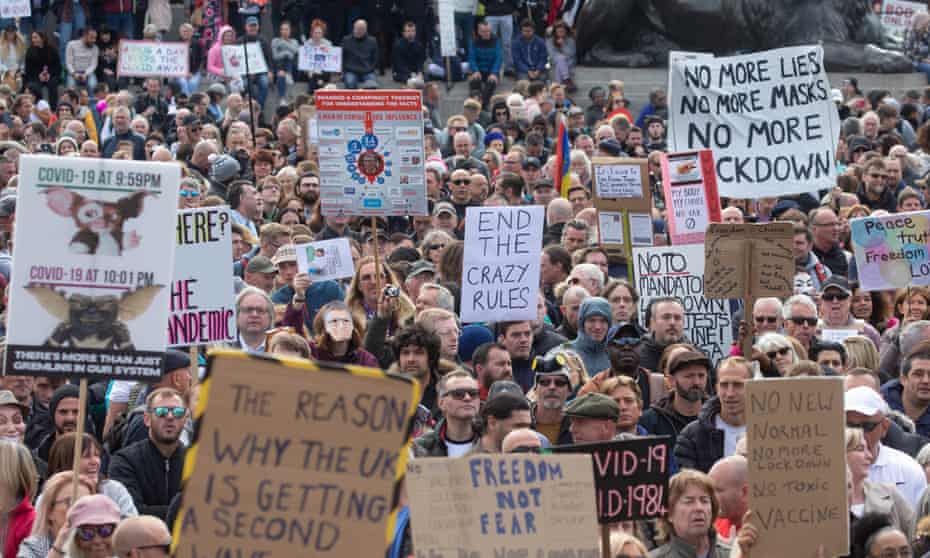
An anti-lockdown protest in Trafalgar Square, London, September 2020. Photograph: Mark Thomas/Rex/Shutterstock
In September, as concern grew about the spread of disinformation, Facebook shut down some of the biggest Covid sceptic groups, including Stand Up X. Most migrated to Instagram, which, despite being owned by Facebook, was not subject to the same crackdown. All the major groups made more use of their channels on Telegram, the largely unmoderated messaging app. The platform isn’t as widely used as Facebook – most of the main Covid sceptic Telegram groups have between 5,000 and 15,000 users – but discussion is lively, with members swapping thousands of messages a day. And the closed nature of the platform – with groups essentially operating like giant WhatsApp chats – helps to entrench people in their positions.
Anna signed up to an anti-lockdown Telegram group, but it made her uncomfortable; when she talks about the pandemic, she is respectful of those who don’t share her perspective. It wasn’t like that on Telegram. “I found people to be quite militant and set in their views,” she said. “You have to be willing to have your mind changed.” After a fortnight, she left and went back to Instagram, where there were plenty of accounts sharing content that she preferred – including anti-lockdown activists from the US and Europe. She didn’t come across anything that changed her mind.
Advertisement
Covid scepticism is a global phenomenon. Although its central tenets are reasonably consistent – that the pandemic is exaggerated, or that we’ve been lied to about its origins, or that it’s cover for something more sinister – it has different inflections around the world. In the US, many Covid sceptics are also libertarians paranoid about government intervention, who advocate for gun rights and see masks as fundamentally “un-American”. In Germany, anti-lockdown rallies – which have attracted tens of thousands of people – are promoted and sometimes organised by the far right. In France, already one of the most vaccine-hesitant countries in the world, Covid sceptics have harnessed existing suspicion of big pharma and venal politicians. In Britain, Covid scepticism is often framed in terms of our fundamental rights and freedoms: the right to protest, the right to make a living, the right to make our own decisions. There is much talk of Magna Carta.
In November, during the second lockdown, hairdresser Sinead Quinn became a hero of the movement when she announced she would keep her salon in Bradford open. In the window, she pinned a piece of paper on which she had typed: “I do not consent. This business stands under the jurisdiction of Common Law. As the business owners, we are exercising our rights to earn a living.” Citing “article 61 of Magna Carta 1215”, the document claimed that “we have a right to enter into lawful dissent if we feel we are being governed unjustly”. The notion that citizens don’t have to follow unjust laws, and can only be fined or arrested if they give their consent, is a commonly circulated bit of disinformation. This clause of Magna Carta applied only to a small group of barons, not the public at large, and in any case, it never became statutory law. (In January, Kirklees council obtained an injunction to prevent Quinn from opening her business during a national lockdown again.)
On a cold day in mid-January, two women met at Seven Sisters station in north London. They each had a stack of crudely printed leaflets, notifying businesses of “the Great Reopening” and urging them to open their doors on the 30th in defiance of lockdown. The Great Reopening was promoted by all the main Covid sceptic groups, who hoped that collective action could force the government to lift restrictions. They were inspired by Italian anti-lockdown activists who used the hashtag #ioapro (I Open) to encourage restaurants to open their doors in mid-January. The leaflets included an email address; anyone who made contact would receive a long, dense email setting out Magna Carta and “common law” defence. (Later, on Telegram, the Great Reopening organisers clarified that after speaking to a lawyer they’d established that “parliamentary law always trumps common law” and retracted their advice to use this defence.)
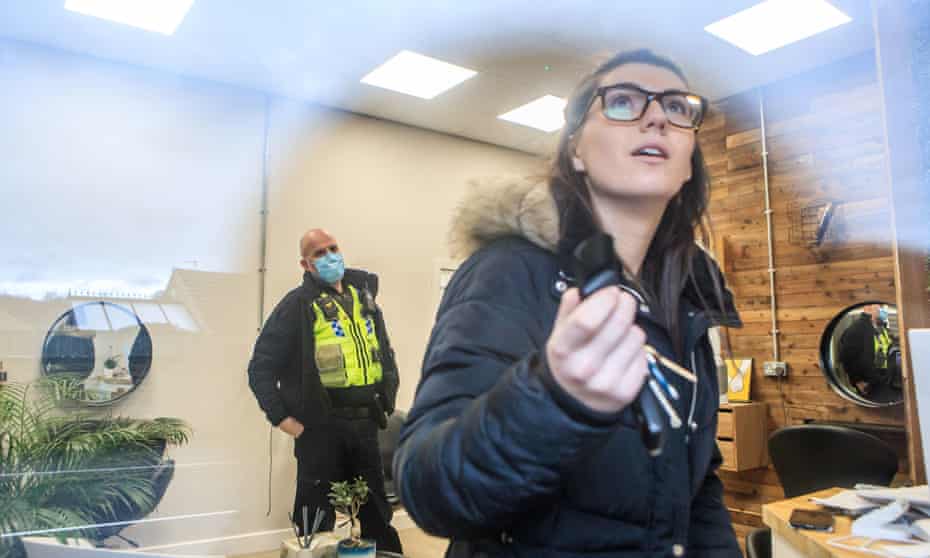
Sinead Quinn in her salon in Bradford on the day of the ‘Great Reopening’, 30 January 2021. Photograph: Danny Lawson/PA
The two women, Lucy and Julia, had initially connected via Telegram. This was the first time they’d met in person. Lucy is in her late 20s, an actor who was out of work and socially isolated during lockdown. Julia is in her 50s and has long been “into alternative health” and suspicious of vaccines. As they walked along the high street, sticking leaflets through the letterboxes of shuttered nail salons and restaurants, they chatted. Lucy had never been involved with anything like this before, but the more she read, the more convinced she was that the pandemic was being exaggerated, and that lockdown was a means for government to increase its control. “I have lost friends,” she said. “But it’s given me a lifeline. If we don’t come out of lockdown this year, I’ll probably kill myself. I’m not the only one who feels like this.” Julia agreed with her. “It’s so frustrating to see your loved ones blindly swallowing propaganda. I’m really scared about how many people will take this gene-altering vaccine because the government has lied and created all this fear.” Before they went their separate ways, they agreed to meet up more often.
In the week before the big day, Telegram users encouraged one another to phone businesses to check if they knew about the Great Reopening. Many were disappointed to find that no one had heard of it. On the morning of the Great Reopening, one user urged others to keep on message: “No Illuminati or unrelated chat today. Only reopening chat.”
The Great Reopening was a flop. About 70 businesses in the UK agreed to open, sharing their details on an online spreadsheet. “Really only 70 with nearly 13,000 members just in here!” wrote one disappointed user on Telegram. In the late morning, I stopped off at the only business in my vicinity listed on the site – a small clothing boutique in north London. A woman was inside, but the door was locked. I knocked and asked if she had reopened that day. She nodded, adding knowingly: “We had a visit.” She was not alone in this; all the businesses listed online were shut down by police early in the day.
On Telegram, people complained about the poor showing. “Most people are lazy as fuck,” wrote one user. “We have been living among stupid robots far too long!”; “We’re up against a highly sophisticated, well-funded propaganda machine, so it is not going to happen overnight,” counselled another.
Even the area where the anti-lockdown movement had previously found success – street protests – floundered over the winter. The day of the Great Reopening was cold and wet, but a small group of protesters still showed up in Hyde Park, as they have most weekends since the summer. Four riot vans were parked at nearby Marble Arch and a further six vans did circuits around the park. “It’s become a weekly occurrence,” a police officer told me. “Sometimes it gets rowdy, but it’s like any other protest – there’s a few troublemakers, but mostly it’s fine.”
The protest was sparsely attended; people milled around, trying to work out who else was there to demonstrate. On Telegram, messages had gone out telling people to gather at midday with the grand aim of “marching on parliament”. But there was no clear plan, and no one was leading the protest.
Luca, the Polish man who had attended the big Trafalgar Square rallies in the summer, had come along. He told me that a few weeks earlier, he’d been arrested after a protest in Clapham turned violent. But it hadn’t put him off. He firmly believed that the pandemic was a globalist conspiracy, and that it was vital to resist. He broke off, looking nervously at the police. “They’re going to come over here if they see us talking,” he said.
Eventually, a group of about eight people identified one another and started chatting under a gazebo as they sheltered from the rain. They were an unlikely group – two middle-aged women in brightly coloured winter coats, two men from Essex with a carrier bag full of beer tins, who cheerfully told me they were “from the far right”, an older man with a shock of grey hair, and Luca, a self-described “tech-libertarian”. No sooner had they begun to talk than four of the police vans that had been circling the park drove up to them.
“Go home, there is a national emergency,” the police officers shouted. “You are not allowed to be here.”
The two women shouted back at them. “We’re in the park, we’re allowed to be in a public place.”
Other would-be protesters looped around the park, not wanting to stop while the police were there. Two older men in leather jackets kept walking once they saw the altercation. As they strolled out of the park, I saw that one of them had “FLU WORLD ORDER” scrawled across the back of his jacket in large letters. People gradually dissipated, leaving just Luca and the two men with the bag of tins. They told me that they had lost their jobs in the pandemic; they’d worked in the building trade. An aunt’s hairdressing salon had gone bust. They’d first come across the protest movement through “Patriot groups” on Facebook.
One said sadly that his grandparents wouldn’t see him any more. “They believe this whole thing, hook, line and sinker. They’ve been brainwashed by the BBC. To be honest, I don’t blame them. I put it on for 15 minutes the other day, and I could feel myself getting brainwashed, too, so I switched it off.”
As the UK’s vaccination programme picked up steam over February, and infection numbers dropped, Boris Johnson announced the roadmap out of lockdown. It was greeted with predictable scepticism by anti-lockdowners. “Subject to conditions being met … Behave and you get freedom at the end. Or what you think is freedom,” Sinead Quinn, the hairdresser, posted on Instagram. Keep Britain Free, a group founded by Dolan, tweeted that Johnson “has spearheaded the greatest destruction of our freedoms over the past year and is still refusing to hand them back”.
Many of the anti-lockdown Telegram channels refocused on opposing vaccinations. People asked for advice about stopping their parents and grandparents from taking the jab. “Unfortunately, many who took the jab are likely to die within the next 3 to 18 months,” stated one user. Disagreement was unwelcome. In mid-March, when one user posted that they were going to get their vaccine as soon as they were eligible, the administrator replied: “You are in the wrong group then.” Someone else responded “What a fucking nob head trying to instigate something.” “Defo a troll,” another agreed. The user was blocked.
Although vaccine uptake is high – more than 90% of over-70s in England have had it – many doctors have encountered scepticism. “I’ve had patients with Covid who say, ‘I don’t want to go to hospital because the oxygen will kill me’,” says Siema Iqbal, a GP in Manchester. Many of her older patients get their information from their children, who are immersed in denialist social media groups. “Sometimes we’ve found elderly people will not take the vaccine because the children have said ‘don’t have it’,” Iqbal said. “They’re not just affecting their own uptake. They’re affecting a big, multi-generational household.”
Other healthcare professionals I spoke to had experienced online abuse from Covid sceptics, or found their daily work disrupted by organised campaigns. Earlier this year, Stand Up X encouraged followers to call hospitals to ask about their capacity. One hospital receptionist in southern England told me she had fielded several of these calls a week in January. “This was such a busy time, and we’re talking to people at the worst moments of their lives, calling up to ask if they can visit their dad before he dies. Then in among that you get someone demanding to know how many Covid patients we have and how many spare beds, because they’re essentially saying ‘you’re a liar’.”
In recent weeks, street protests have returned with an energy not seen since the autumn. On 20 March, a protest was held to mark a year since lockdown began. Police vans gathered near Marble Arch and helicopters circled overhead. People streamed towards Hyde Park Corner. There were young people in athleisure, older men in full black paramilitary-style gear, older women in tie-dye. A small child handed me a leaflet that said: “SOS – what is happening to our world?”, advertising an evangelical church.
As Hyde Park Corner came into view, so did the crowds of people, cheering and blowing whistles. A young black man in a “Black Lives Matter” T-shirt shouted into a megaphone: “People, how powerful is this?” A few paces on, a white man in a baseball cap that read “Make England Great Again” stood on a railing, looking down at the crowd. A woman held up a placard that said “Censor paedophiles, not scientists”. More than one person wore a six-pointed yellow star, reminiscent of those that Jews were forced to wear in Nazi Germany, with “Covid” or “Exempt” written in the centre. Spontaneous chants went up of: “Freedom! Freedom!” and “We are the people! We are the power!”
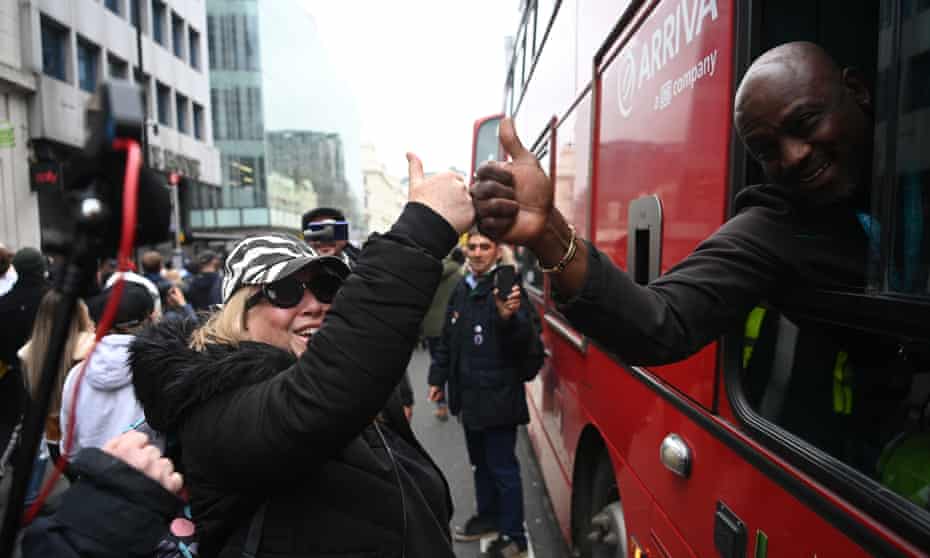
A woman and a bus driver during an anti-lockdown protest in London, 20 March 2021. Photograph: Neil Hall/EPA
The demonstrators marched to Marble Arch and down Oxford Street, blocking traffic. They banged on the windows of buses, shouting good-naturedly at passengers to take their masks off. A few obliged; more than one bus driver reached out of the window to shake hands with protesters and give them the thumbs up. The atmosphere was like a carnival; people smoked spliffs and drank beers. Two rastas with greying dreads played handheld drums and people danced alongside them. A group of young women in brightly coloured clothes held placards that said “My body, my choice” on one side and “Make Orwell fiction again” on the other; near them, a man in a union jack suit with “Brexiteer” emblazoned on the back walked alone. A large group of police stood at Bond Street station. People booed them. A man with a megaphone shouted: “Your job is to protect the people and you’re oppressing them. They want to see their families. You’re disgusting.”
People had travelled from all over the country; one man in his 40s drinking a can of lager said he’d come from Blackpool. It was his sixth visit to London to protest; until last year, he’d never attended a march. “It’s the biggest hoax in world history,” he told me. “We’re going to turn into a communist country like China. Is that what you want?” When I asked about the roadmap out of lockdown, he told me that the country would be “locked down illegally for at least two years” because of invented variants. A woman in her 50s dressed in brightly coloured patchwork, with glitter smeared on her cheeks, told me she had travelled from the Midlands, where she works as a psychotherapist and home-schools her teenage children. “I’ve never been a protest person, but we care about our freedom, and we’re not going to collude with the New World Order,” she said. “This last year made me get out of my little bubble and look at the wider world.”
By the evening, the crowds began to disperse. The mood on the Telegram channels was jubilant. “GUYS FUCKING AMAZING ABSOLUTELY BUZZING THANK YOU SO MUCH FOR COMING OUT TODAY THEY HAVE TO TAKE NOTICE NOW. WE JUST ACHIEVED THE BIGGEST MARCH IN THE WORLD THIS WEEKEND,” one of the organisers wrote. People insisted that more than 100,000 people had attended (it was likely closer to 10,000). They turned their attention to another protest to take place in late April. Other, more localised protests continued, too; in late March, a group of maskless protesters entered a Tesco in Chelmsford. Videos of the action went viral.

Why can’t we agree on what’s true any more?
Read more
Not everyone who broadly supports the cause has been protesting in the streets, but most feel alienated and pessimistic about lockdown actually easing. Anna’s endometriosis flared up over the winter, and she suffered a severe adverse reaction to anaesthesia. She almost died. “I’ve got a lot of feelings about how I’ve spent the last year of my life, and it has essentially been trapped indoors for nine out of 12 months,” she said. “If a partner had done to me what the government has done over the past year, there’d be abuse charges: telling me I can’t work, I can’t see my family, I can’t see my friends, you’re only allowed to rely on me for money. I feel gaslighted.”
Her health problems meant less time to engage with anti-lockdown activism, but as the movements have broadly shifted to anti-vaccine content, she, too, has become more receptive to their concerns. She understands why older people are taking the Covid vaccine, but feels young people are being “coerced”, and worries that it is “experimental”. For months, anti-lockdown groups have warned of vaccine passports; the government is now talking seriously about this possibility. “We were being called conspiracy theorists, and now it’s actually happening,” she told me. “I’ve definitely fallen out with the government, and I will never, ever trust them again.”
For most people, it is easy to ignore the fact that this scepticism still exists, but this loss of trust will find another outlet when the pandemic eventually ends. After I left the protest, I walked back along the Strand. The police vans at Charing Cross station were the only sign something was unusual. Most shops were shut, people picking up coffee or snacks wore masks, and hand-sanitiser dispensers stood at regular intervals along the street. An old woman, who had diverged from the protest crowd, handed out leaflets warning of the risks of masks and vaccines. Passersby took the leaflets, and dropped them, without looking, as they carried on walking.
Some names have been changed
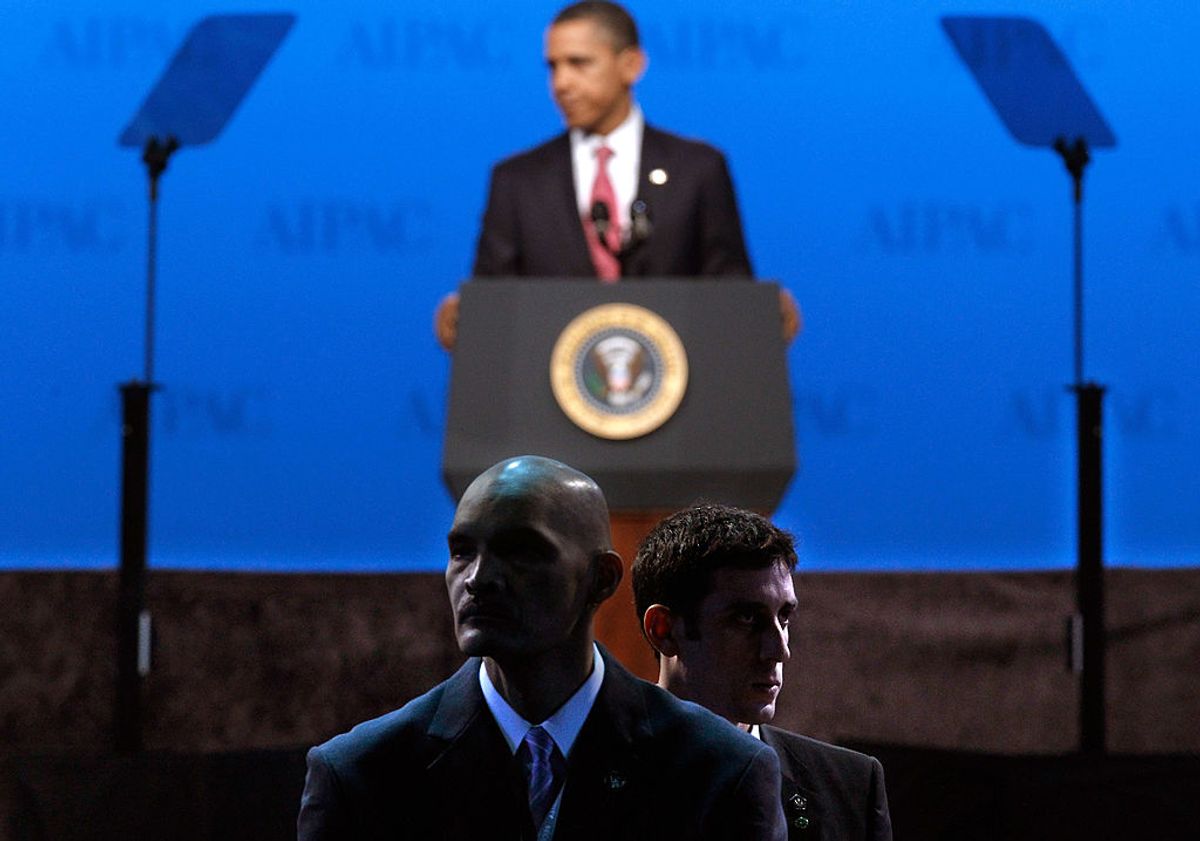


.jpg)

